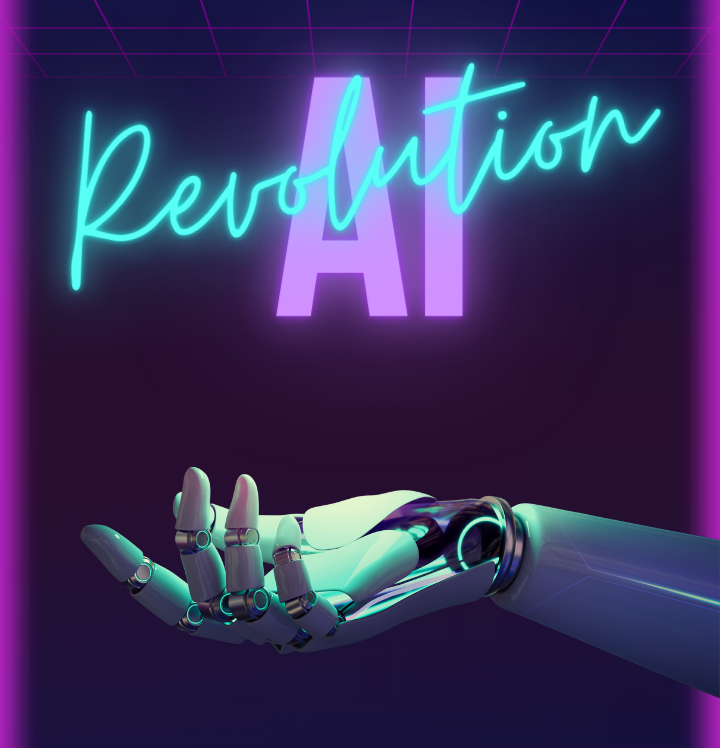In today’s rapidly advancing technological landscape, artificial intelligence (AI) has emerged as a transformative force, revolutionizing industries and reshaping the way we live and work. From virtual assistants to self-driving cars, AI is paving the way for a future powered by intelligent machines. In this blog, we will explore the world of artificial intelligence, its applications, and the impact it is having on society.
What is Artificial Intelligence?
Artificial intelligence refers to the development of computer systems that can perform tasks that typically require human intelligence. It encompasses a wide range of capabilities, including perception, reasoning, learning, problem-solving, and decision-making. AI systems are designed to mimic human cognitive abilities, enabling them to understand, analyze, and respond to complex situations.
Types of Artificial Intelligence
Artificial intelligence can be classified into two main types:
- Narrow or Weak AI: Narrow AI focuses on performing specific tasks or functions. Examples include virtual assistants like Siri and Alexa, recommendation systems, and image recognition software. Narrow AI systems are highly specialized and excel in their specific domain but lack general intelligence.
- General or Strong AI: General AI aims to replicate human-level intelligence across a wide range of tasks and domains. This type of AI possesses the ability to understand, learn, and apply knowledge in a manner similar to human beings. While general AI remains a goal for future development, the current focus is on narrow AI systems.
Applications of Artificial Intelligence
Artificial intelligence finds applications in various fields and industries, transforming the way businesses operate and enhancing everyday life. Here are some key areas where AI is making a significant impact:
- Automation and Robotics: AI-powered robots and automation systems are revolutionizing industries such as manufacturing, logistics, and healthcare. Robots equipped with AI capabilities can perform repetitive tasks with precision and speed, leading to increased efficiency, productivity, and cost savings.
- Virtual Assistants and Chatbots: Virtual assistants like Siri, Alexa, and Google Assistant have become an integral part of our lives. These AI-powered assistants can understand natural language, answer questions, perform tasks, and even engage in human-like conversations. Chatbots, deployed in customer service, provide instant support and enhance user experiences.
- Healthcare and Medicine: AI is transforming healthcare through improved diagnostics, personalized treatment plans, and drug discovery. Machine learning algorithms analyze vast amounts of medical data, helping physicians make accurate diagnoses and develop tailored treatment options. AI-powered technologies are also assisting in medical imaging analysis, drug research, and robotic surgeries.
- Finance and Banking: AI is reshaping the finance industry with applications such as fraud detection, risk assessment, and algorithmic trading. Machine learning algorithms can analyze large datasets, identify patterns, and detect anomalies, enabling early fraud detection and prevention. AI-powered chatbots are also being used for customer support and personalized financial advice.
- Transportation and Autonomous Vehicles: Self-driving cars and autonomous vehicles are driving the future of transportation. AI algorithms analyze sensor data, detect objects, and make real-time decisions to navigate safely. Autonomous vehicles have the potential to enhance road safety, reduce traffic congestion, and revolutionize the way we travel.
- Natural Language Processing: Natural Language Processing (NLP) focuses on enabling computers to understand and interact with human language. NLP techniques power language translation, sentiment analysis, speech recognition, and voice assistants. AI-powered language models, like the one used to generate this blog, are capable of generating human-like text.
Ethical Considerations and Challenges
As AI continues to advance, it brings forth ethical considerations and challenges that need to be addressed. These include concerns about privacy, data security, bias in AI algorithms, and the impact of AI on jobs and the economy. It is important to develop ethical frameworks, regulations, and guidelines to ensure responsible and fair AI deployment.
The Future of Artificial Intelligence
The future of artificial intelligence is filled with possibilities. As technology advances, we can expect AI to continue transforming industries, enabling breakthroughs in healthcare, transportation, education, and beyond. Continued research and innovation will drive the development of more sophisticated AI systems, bringing us closer to the realization of general AI.
Artificial intelligence has already become an integral part of our lives, enhancing efficiency, convenience, and personalization. As AI continues to evolve, it is crucial for us to embrace its potential while ensuring its responsible and ethical deployment. By harnessing the power of AI, we can unlock new levels of innovation, solve complex problems, and shape a future where intelligent machines work hand-in-hand with human intelligence.

